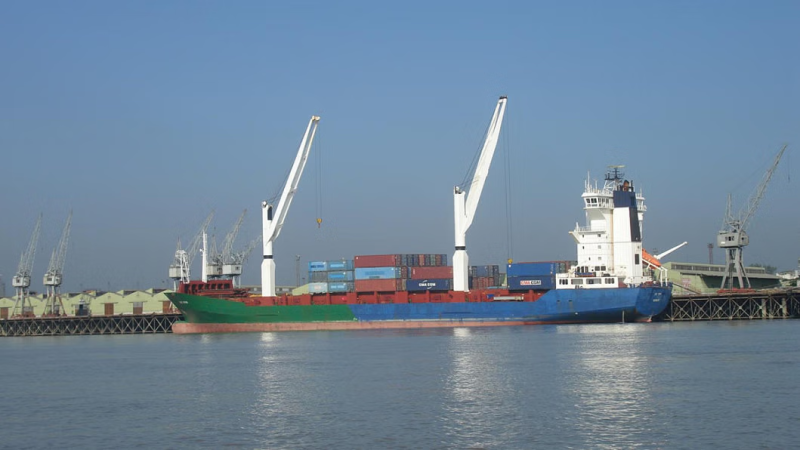- India Sees 9% Drop in Foreign Tourists as Bangladesh Visits Plunge |
- Dhaka Urges Restraint in Pakistan-Afghan War |
- Guterres Urges Action on Safe Migration Pact |
- OpenAI Raises $110B in Amazon-Led Funding |
- Puppet show enchants Children as Boi Mela comes alive on day 2 |
$7.6m Export Earnings Blocked in Russia: BKMEA Chief

Export proceeds totalling approximately $7.6 million, owed to 14 Bangladeshi exporters, have remained blocked in Russia for over a year amid a severe shortage of US dollars, according to Bangladesh Knitwear Manufacturers and Exporters Association (BKMEA) President Mohammad Hatem.
He suggested that the government could ease the situation by settling the exporters' dues using Russia's loan repayments for the Rooppur Nuclear Power Plant project.
The prolonged payment delay stems from US-led sanctions on Russia, which have significantly restricted the country's ability to conduct international transactions in US dollars.
Hatem also criticised the prevailing tax system, calling it complex and unfriendly for businesses and investors. He highlighted that knitwear exporters continue to face significant challenges, especially due to the lack of an adjustment mechanism for advance income tax (AIT). “Although the official corporate tax rate for the sector is 12 percent, the effective burden is much higher,” he said.
Despite the difficulties, Hatem expressed optimism, noting that the new chairman of the National Board of Revenue (NBR) has shown a positive attitude towards resolving business concerns.
He further pointed out the structural issues in the banking sector, which he said are hindering the country's export growth. “There must be a comprehensive reform in banking to support exporters,” he added.
Hatem, who is contesting the upcoming BKMEA election as the presidential candidate from the Progressive Knit Alliance, pledged to continue supporting rational and legitimate demands of workers.
He also called for a more competitive electoral environment, mentioning that his panel would have preferred a contested election. However, due to strong member support, only three independent candidates are running against his 35-member panel.
The election for the 2025–27 term is scheduled for Saturday, with 582 voters eligible to cast their ballots, including 272 from Dhaka, 224 from Narayanganj, and 76 from Chattogram.
Unveiling a 15-point manifesto, Hatem’s panel outlined a reform-driven agenda aimed at improving the business environment in the knitwear sector. Their proposals include simplifying tax laws, eliminating customs bottlenecks, and implementing transparent and accountable investment policies.
Other pledges include the simplification of HS codes, easing import-export procedures including free-of-cost shipments, and resolving issues in the bonded and non-bonded supply chains. The panel also plans to push for licensing support for non-bonded factories to start exports.
Addressing VAT-related concerns, the alliance called for an end to harassment of export-oriented businesses and the removal of transportation barriers that raise logistics costs.
In response to the current liquidity crunch, the panel pledged coordinated discussions with Bangladesh Bank and relevant ministries to fix fundamental flaws in the banking sector.
Additional commitments include restoring yarn imports via land ports to reduce lead times, ensuring an uninterrupted gas supply to industries, promoting high-value apparel products, and blacklisting unethical buyers who cancel or delay payments after goods are shipped.
The panel also vowed to improve SME access to finance, engage in policy advocacy on labour and sustainability, and construct a permanent BKMEA office in Dhaka.

